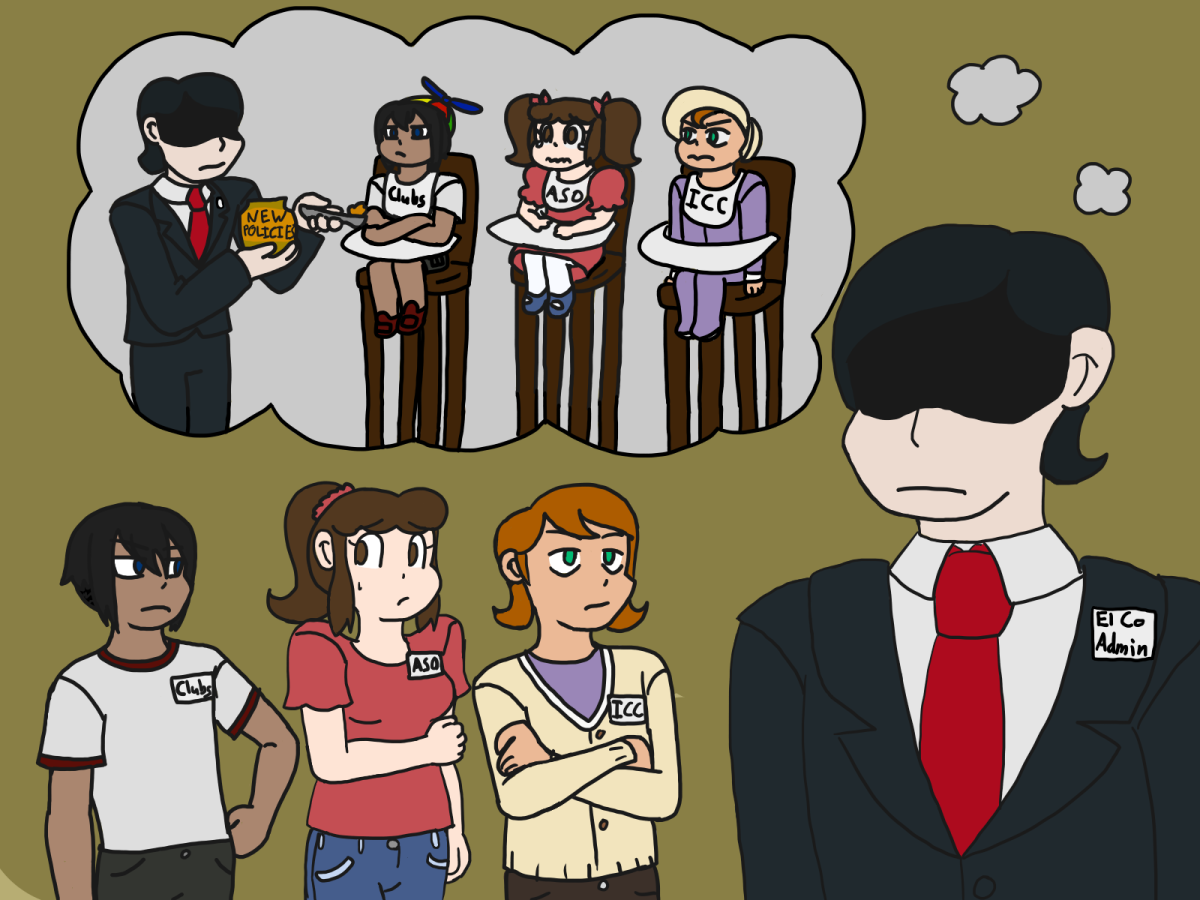– The issue:
Technological advances makes cheating easier.
– Our stand:
The ramifications from cheating outweigh the chances that a student will get caught.
Many students have been guilty of cheating in their classes. Some have gotten away with it, but there are also those who have had to face major consequences.
In today’s world with technology playing a major role with our daily lives, information is available at our fingertips. From finding directions to a particular destination in just seconds or reading reviews on a local restaurant. Finding the answers to a test or exam can be just as easy.
In the past, cheat sheets were commonly used for tests, but some of the best techniques to cheat can now be found on “YouTube.” On the website, students can learn how to use their phones to cheat and use photo-editing programs to print test answers on a Coke bottle label.
According to the college’s Standards of Student Conduct, some examples of cheating include copying or allowing another student to copy from one’s paper or answer sheet during an exam, allowing another individual to assume one’s identity for the purpose of enhancing one’s grade for testing, field trips or attendance and changing answers on a previously scored test, assignment or experiment with the intent to defraud.
The question as to why students want to cheat is one that many professors want to know. Some say it’s peer pressure among classmates or friends who want to help each other out. Others blame the pressures of being a student along with other responsibilities such as maintaining a job and supporting a family.
Others may argue that students resort to cheating as the only way to pass difficult classes. For example, a student in the last semester of community college has more pressure to pass certain classes in order to be able to transfer to a desired university. Some may see cheating as the only way out. If they aren’t passing. There is also a constant pressure of having higher GPA’s on their transcripts.
Regardless of the situation, cheating is still a bad habit for students to develop.
According to the Administrative Procedure 5520 of Student Discipline and Due Process Procedure, when a student is first caught cheating he or she will receive a verbal or written notice given by a faculty member or the Director of Student Development and noted in their record. The professor or college has the option to then reprimand and request further disciplinary action, which can lead to disciplinary probation.
Someone who cheats their way through college will not benefit from a class as much as students who make an effort to study more. Persevering through a difficult class and buckling down to pass is more of a learning experience than finding innovative ways to cheat. Cheating will ultimately make it difficult for a student to go to a different college with that on their record.
Before a student considers cheating, they should consider the consequences first and weigh the pros and cons.
Because at the end of the day, nothing is gained from cheating. What good is receiving an “A” when you didn’t work hard to deserve it?
-See related article on




